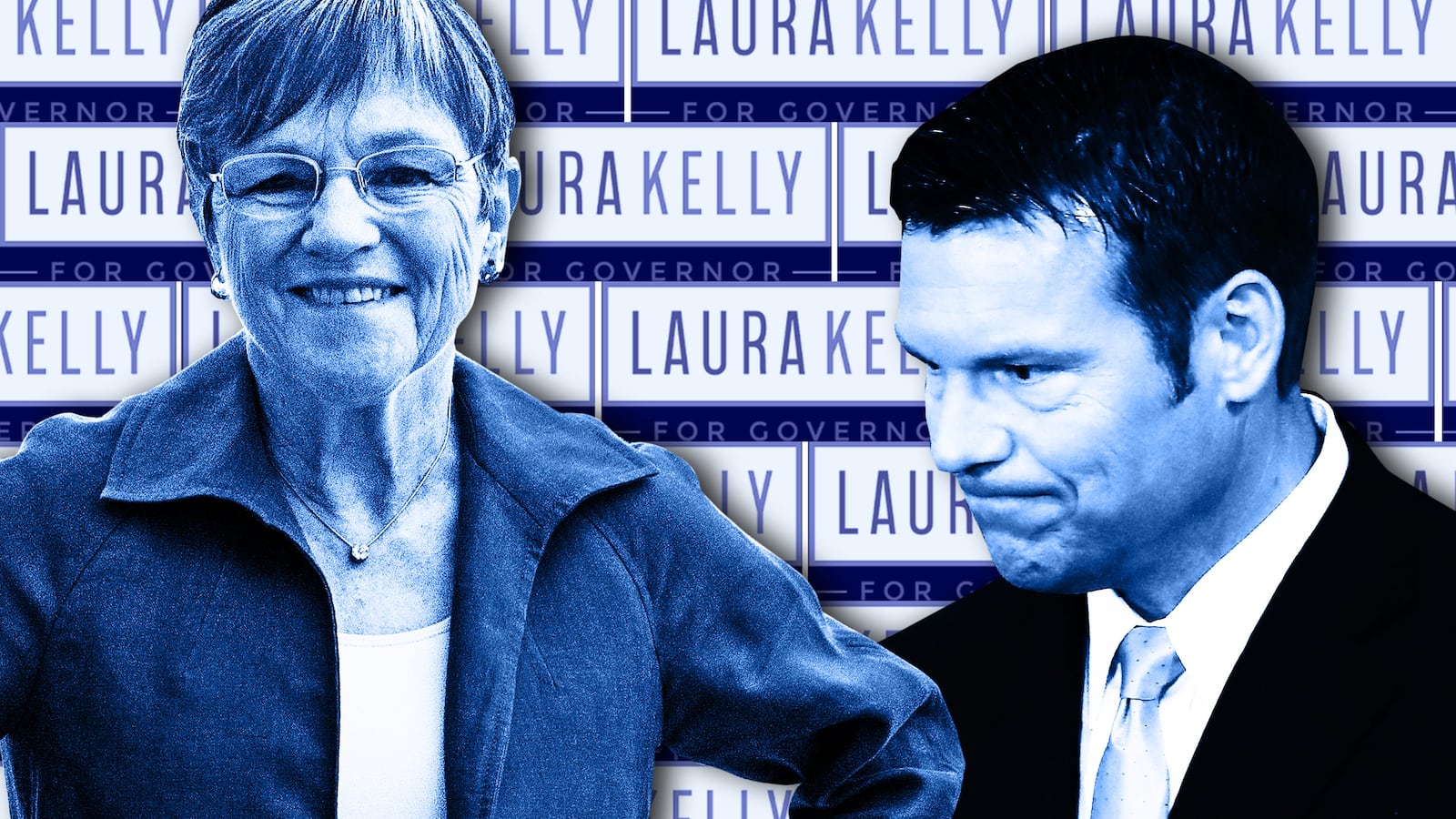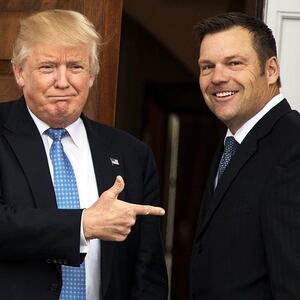Laura Kelly, a Democratic member of Kansas’ state Senate, was elected governor on Tuesday night, beating back both Republican firebrand Kris Kobach and independent candidate Greg Orman.
In her campaign, Kelly said she would expand Medicaid in the state, reverse previous Gov. Sam Brownback’s income-tax cuts, and focus on education funding.
Kelly may have benefited both from the low image voters had of Brownback, who polled during his tenure as one of the least-popular governors in the nation. But the extreme policies of Kobach, who is best-known for his short-lived job atop Trump’s commission investigating voter fraud, couldn't have helped. The fraud commission was largely based off unsubstantiated claims. As Kansas' Secretary of State, Kobach was torn apart in a federal court in March for his claims about voter fraud—and held in contempt for failing to register potential voters in the state.
It’s not completely out-of-the-ordinary for Kansas to elect a Democratic governor. In fact, Kathleen Sebelius served as governor from 2003 to 2009 before serving as President Obama’s secretary of the Department of Health and Human Services.
Kobach received a vociferous, last-minute endorsement from Trump during the state’s Republican primary, but may have fallen prey to more moderate Republican voters recoiling from his candidacy.
Kobach accepted contributions from white nationalists, and continued to question Barack Obama's American citizenship years and years after the former president produced his birth certificate. Kobach's far-right positions also influenced 28 former Republican lawmakers to back Kelly as the next governor of the Sunflower State.






